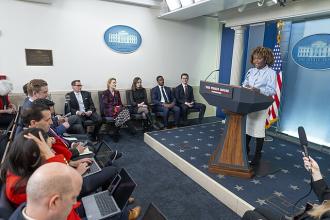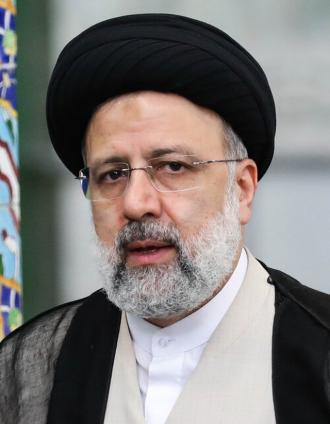Baltimore, MD - July 2, 2020 - It has been a thrilling experience to be back in shul after being locked out for so long. And it is gratifying to see almost all of our community adhering to the guidelines that were put in place to make the shul reopening safe, particularly social distancing and masking. But it is troubling to see a small minority of the community not adhering to these guidelines.
In fact, it is infuriating. For months, many of us complained about government officials and health experts being “overly restrictive” in banning activities like shul-going altogether. After all, people argued, just let us get together in a safe way. And now that we are being allowed to do just that, why do some people insist on being unsafe?
As we have been told over and over again, the goal is not just for everyone to keep himself safe; it is to keep other people safe by reducing the likelihood of spreading COVID-19. Health experts have recommended mask-wearing, in particular, mostly to prevent the mask-wearer from unknowingly passing on the virus to other people. So when someone is shul insists on not wearing a mask, that person is endangering other people’s health. What gives him the right to do this?
I have complained about this to several non-mask-wearers. Here are some of their answers, with an explanation of why each of the answers does not hold water:
“Studies show that masks don’t work anyway.” – It depends on what you mean by “don’t work.” Until now, masks were mostly worn in hospitals and similar health-care settings. In that environment, the criterion was that personal-protective equipment should be (almost) 100% guaranteed to prevent infection. And ordinary surgical masks do not completely prevent the wearer from breathing in airborne pathogens. (A discussion of the level of protection possibly afforded by N95 masks is beyond the scope of this article.)
In our case, however, the idea is not to completely prevent a chance of infection; it is to reduce the risk of infection to the point that the benefits – such as shul-going – outweigh the risks. Wearing a mask does block almost all of the viruses that an unknowingly infected person might project onto the other people in the room. It also blocks some of the viruses that might be present in the air from being breathed in. Taken together, these two effects dramatically cut the risk of transmission from one person to another. Since this is what we care about, masks “work.”
“Wearing a mask is actually unhealthy, because it reduces the amount of oxygen being breathed!” - I checked this claim out on myself. Using a pulse-oximeter, I checked my blood oxygen saturation level at various times. Without a mask, I had a saturation level of about 97%. (I am slightly asthmatic.) After wearing a mask for about an hour, I had a saturation level of about 96%, a negligible difference.
“Masks are so uncomfortable! I can’t daven properly with them!” – For many years, surgeons have performed complicated surgeries wearing masks. Evidently, a person can manage to concentrate even while wearing a mask. And now, literally thousands of hospital workers wear masks for twelve hours shifts, with only a half-hour break for lunch. Most of them report that after a few times of doing this, they got used to it. We can get used to wearing a mask, too. I have.
“Everyone should choose for themselves what to do.” – As explained earlier, the main purpose of wearing a mask is to prevent other people from contracting the virus from the person wearing the mask. A person does not have the right to choose whether to take the chance of infecting someone else.
“How dare the government dictate to me what I should wear?” – Even if you believe that the government has no right to prevent people from infecting others with a deadly disease, and even if you believe that it is somehow acceptable for frum Jews to flout explicit government directives, the issue here is something else completely: Does a person have the right to take the chance of infecting another person? To me, the answer is pretty obviously no. But if you are not sure, please ask the same posek you would consult for any other pikuach nefesh shailah.
“I just got back from another community where no one wears a mask, and no one is getting sick!” – First of all, the jury is still out on this. Some experts have suggested that cases will noticeably spike only about two months after people begin violating social distancing rules. Secondly, many other Jewish communities were hit very hard by COVID-19 around Pesach-time. It is therefore quite likely that most of the people in those communities have Coronavirus antibodies, which probably confer some immunity at least in the short run. Boruch Hashem, Baltimore was spared from that heavy wave of infections, so relatively few people in our community have antibodies and are immune. Do we really want to go down the road travelled by those other communities, and experience the rates of sickness, hospitalization, and death that they experienced?
“I read somewhere that it is OK not to cover your nose as long as your mouth is covered.” – The goal of mask-wearing is to minimize the risk of transmission as much as possible while still engaging in various important activities. It is true that most of the viruses that an infected person expels for a significant distance come from the mouth. But a significant number can come from the nose, so covering the nose is an important part of minimizing risk to others. It is certainly important in reducing the number of airborne viruses the mask-wearer inhales.
Bottom line: Please, please, please cover both your mouth and your nose the entire time you are inside a public building such as a shul. Do your part to keep us all safe!















